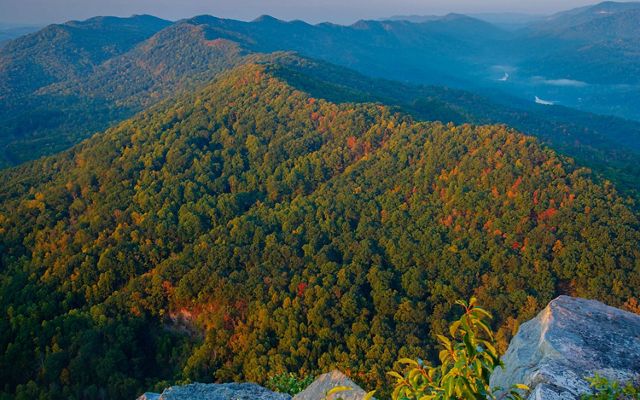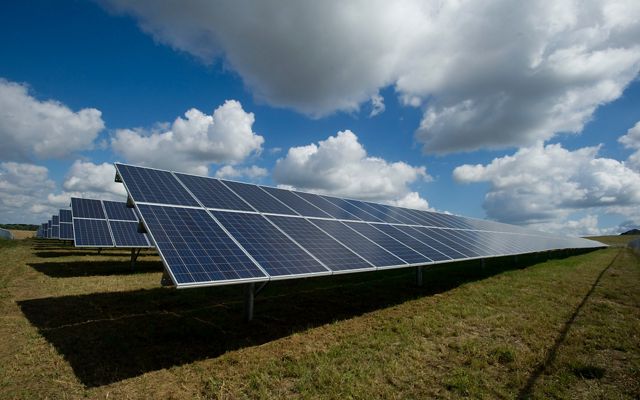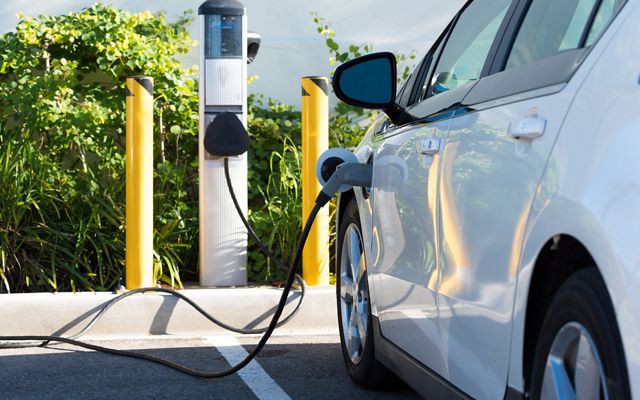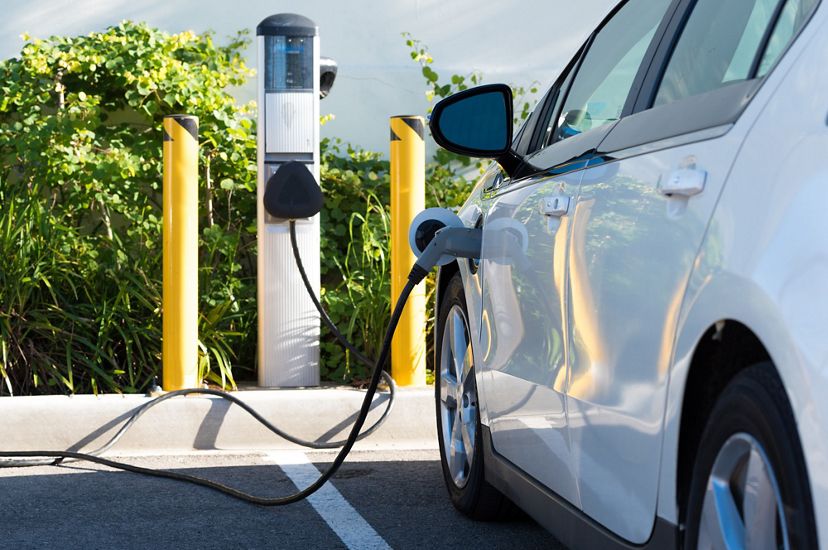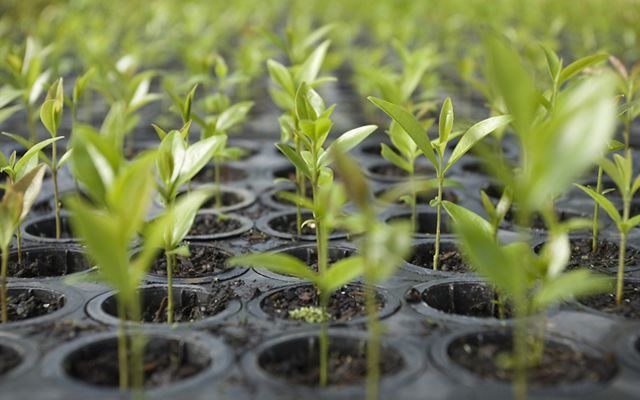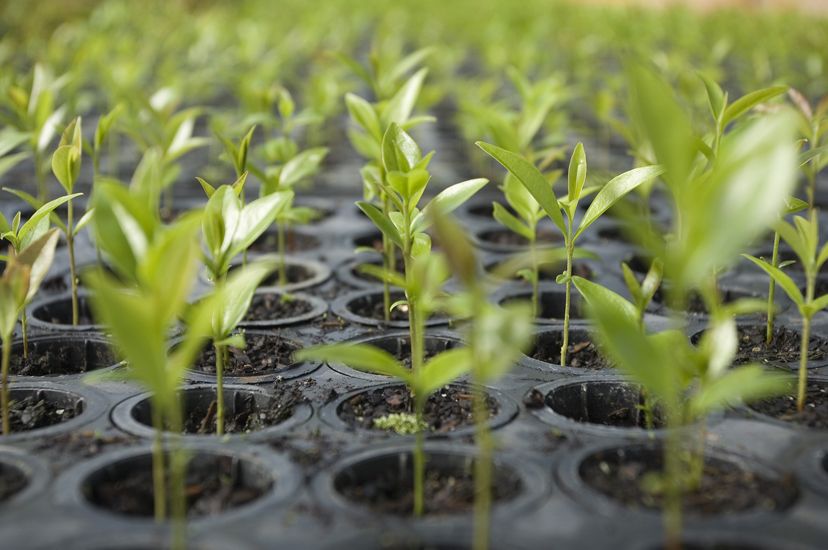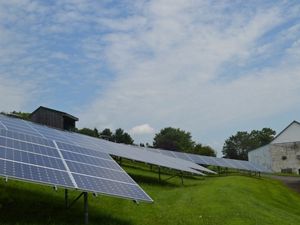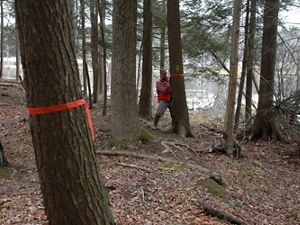Climate Solutions
Science leads the way to a healthier planet for all living things.
Tackling climate change is vitally important. Each successive month brings new heat records, extreme weather and other indicators that our climate is changing at a pace that threatens the quality of our lands, air and waters, the well-being and prosperity of our communities, and general stability around the world.
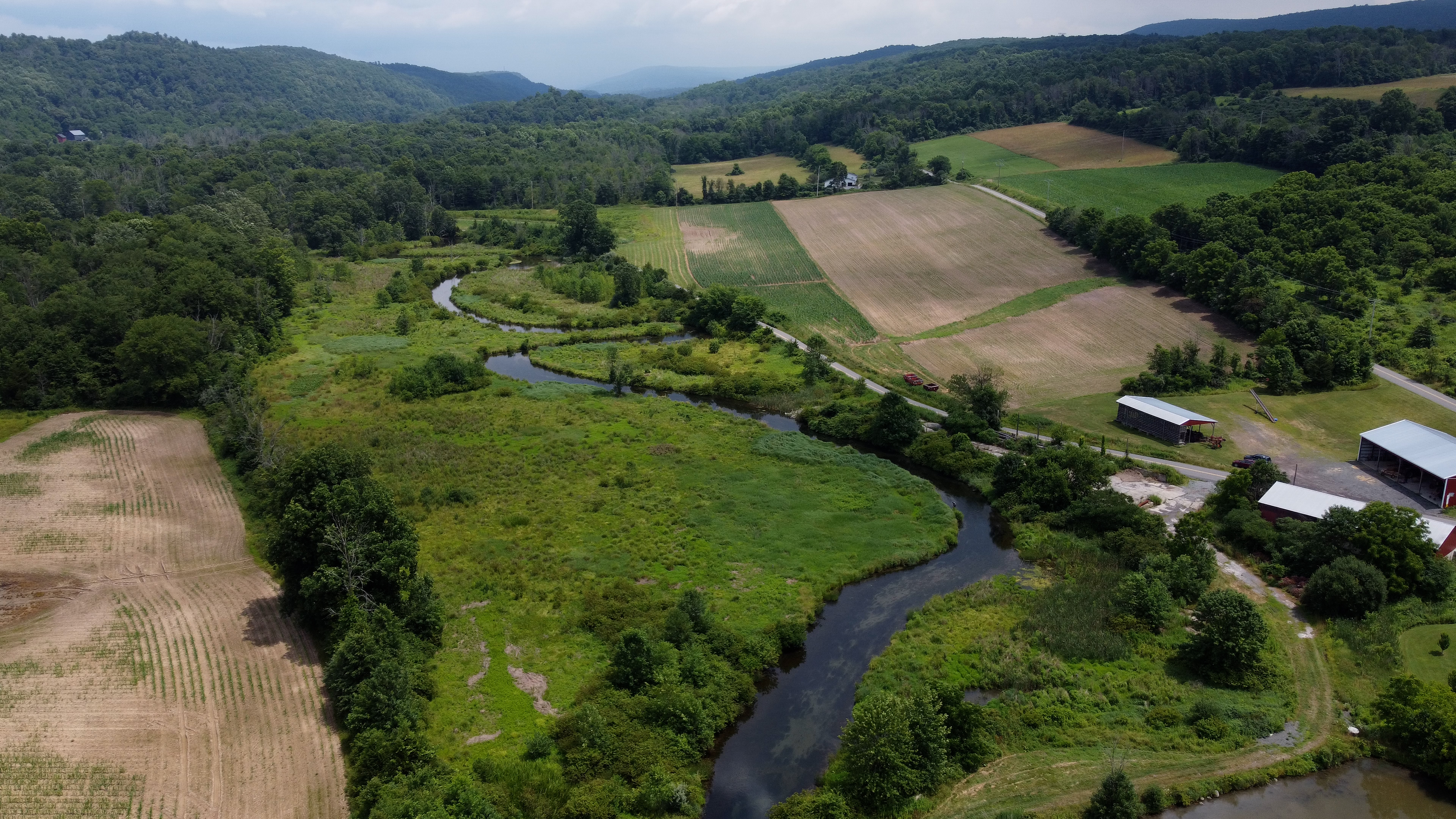
Clean Energy & Climate Policies Benefit Pennsylvania’s Economy & Communities
Research shows investments in clean energy and climate action spurred by recent federal legislation mean jobs, resilience and many opportunities for the Keystone State.
To ensure a safer, healthier future, we must accelerate the clean energy transition to avoid the worst impacts of climate change. And we must act now.
As the UN’s Intergovernmental Panel on Climate Change recently concluded, if we delay this Decade of Delivery, we "will miss a brief and rapidly closing window of opportunity to secure a livable and sustainable future for all.”
Thankfully, fast, bold action on climate also brings opportunities for jobs, security, lower costs, and community resilience.
With about $370 billion of clean energy and climate investments, the Inflation Reduction Act of 2022 is the most significant step toward fighting climate change Congress has ever taken. This historic action makes meaningful progress toward climate goals and unlocks the promise of innovative, cleaner industries and the jobs that come with them.
Opportunities for Pennsylvania
The IRA includes many opportunities for Pennsylvania to capitalize on its leadership in energy, construction trades, and hardwood forest products. These include:
Additional policies also recognize that the costs of climate change are inequitably experienced and make direct investments to improve local air quality, lower energy costs and expand access to clean energy in communities that are most affected and least able to respond to the impacts.
Other provisions will help energy communities and workers better manage the transition to a clean energy future. For example, enhanced tax credits promote the use of represented labor or could accelerate renewable energy development on former mine lands and brownfields.
In Pennsylvania, this suite of investments and incentives will generate significant economic benefits. To find out how much, The Nature Conservancy turned to BW Research Partnership, an independent economic research firm. We asked them to analyze the economic impacts of about $382 billion in federal investments that would be created by the set of policies under consideration in Congress, including clean energy tax credits, infrastructure investments, transportation and building electrification investments and reforestation and conservation grants.
We looked at jobs created annually over a 10-year period, compensation, taxes and the return on investment for each federal dollar spent.
Impacts in Pennsylvania
Impacts generated by the $12.6 billion in federal climate investments in Pennsylvania include:
In addition to the economic impacts, analysis from the Rhodium Group and Energy Innovation found that by 2030 the Inflation Reduction Act could reduce emissions by 40% below 2005 levels – within reach of the emissions reductions we need to meet U.S. climate goals and international commitments. These policies support a prosperous clean energy economy while also helping to fight the climate crisis.
Pennsylvania IRA Resources
-
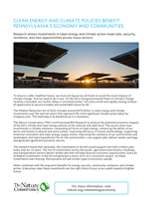
Pennsylvania IRA Factsheet
PDF
Learn how the IRA will benefit Pennsylvania jobs, resilience, and more.
DOWNLOAD
The Nature Conservancy is committed to advancing solutions that match the scale and urgency of the climate crisis. Led by science, we are committed to tackling climate change, both to keep global warming below 2°C and to help vulnerable people and places deal with its negative impacts.
We are working to achieve this by:
- Protecting and restoring healthy and resilient natural landscapes.
- Mobilizing action to secure a clean energy future.
- Supporting laws and initiatives that promote a healthy planet.
- Accelerating natural climate solutions that address environmental threats.
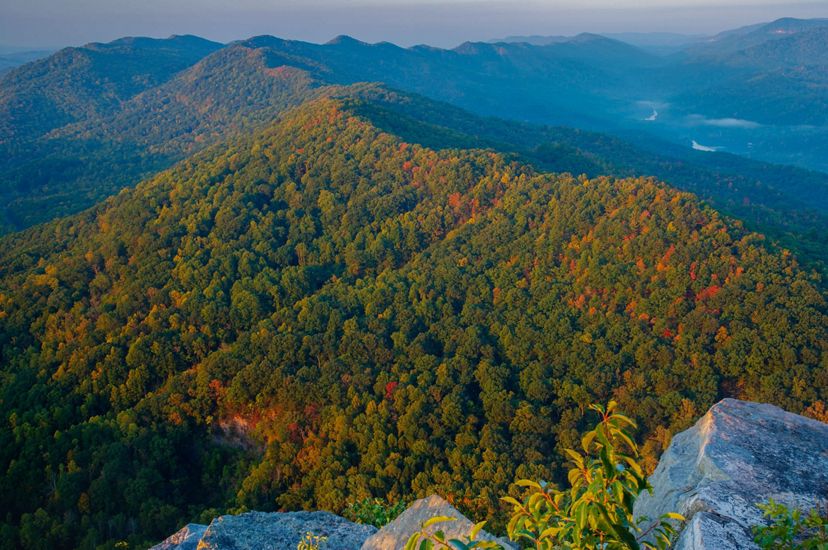
Building Climate Resilience
As rising temperatures and other climate impacts threaten to destabilize natural areas across the United States and around the world, TNC scientists are identifying ecologically diverse and connected landscapes capable of supporting native wildlife while providing drinking water, clean air, fertile soil and other important natural services to people.
TNC has identified two Pennsylvania landscapes capable of standing up to a changing climate, if they are protected to strengthen resilience:
In these places, TNC is working with partners to implement innovative, science-based tools and conservation approaches that preserve lands and waters today to benefit nature and people in the future. One approach includes conserving forests through our Working Woodlands program, which engages private landowners in permanently protecting and managing healthy and productive forests to support both nature and local livelihoods.
As part of Working Woodlands, TNC quantifies carbon stored in enrolled forests to qualify them for an emerging carbon market where companies and other institutions purchase carbon credits from willing sellers to offset their own emissions.
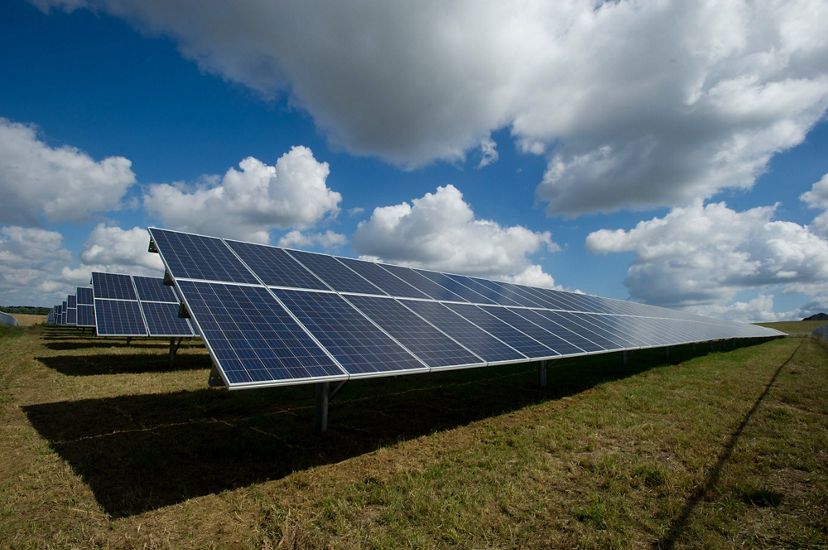
Transitioning to Clean Energy
TNC supports Pennsylvania's efforts to accelerate the transition to cleaner energy. Specifically, TNC is communicating and promoting the benefits of renewable energy alternatives and energy efficiency practices to policy makers, businesses and private citizens living and working in Pennsylvania.
According to the U.S. Department of Energy, Pennsylvania’s energy efficiency industry is responsible for nearly 62,000 jobs, a number that will only grow as the state transitions to cleaner and more efficient energy solutions. It is time to catch up to neighboring states that are surpassing Pennsylvania in pursuit of clean energy goals, jobs and greener economy.
Quote: Evan Endres
Renewable energy and energy efficiency are good for Pennsylvania. Both generate jobs and promote economic growth while benefiting nature and the health and well-being of all Pennsylvanians.
Influencing Change Through Policy
Pennsylvania is a major contributor to the pollution that causes climate change: The state is ranked fifth in the country for carbon dioxide emissions. The Keystone State is also the largest net exporter of electricity in the country, supplying power to many states within the regional grid. Actions to reduce Pennsylvania emissions and to encourage our elected leaders to prioritize climate action are essential to overall success in the United States.
In 2021, Pennsylvania continued its path to joining the Regional Greenhouse Gas Initiative (RGGI). We appreciate the efforts of our Trustees who engaged with their state senators and state representatives to voice support for this important climate action. We also applaud the 600-plus members of the TNC community in Pennsylvania who contacted their elected officials through our action center page outreach and emails.
The Nature Conservancy advances policy solutions that work for people and nature in the U.S. and in countries around the world. Our policy recommendations are drawn from the hands-on experience of decades of working with people from all walks of life, with businesses and industries, and with governments from the local, national and global levels.

Regional Greenhouse Gas Initiatives
In the Fall of 2019, Pennsylvania Governor Tom Wolf announced that the Commonwealth would join the Regional Greenhouse Gas Initiative (RGGI)—a practical, market-based program that has helped nine other states in the Northeast reduce their carbon dioxide (CO2) emissions from power production. We believe this is a positive step for Pennsylvania and are encouraged by the Governor’s action.
RGGI has proven to be an important tool for participating states, cutting harmful emissions while stimulating investments in clean energy and energy efficiency for homeowners, businesses and local governments, as well as providing benefits to forest conservation.
Climate change is a fundamental threat to our conservation mission in Pennsylvania. The experience of RGGI suggests it has the potential to deliver significant reductions in CO2, while spurring the Commonwealth’s transition to a vibrant clean energy economy.
Natural Climate Solutions
With Natural Climate Solutions we can help fight climate change by planting trees, promoting soil health, and protecting our wetlands and coastal ecosystems. These strategies can play a significant role in reducing atmospheric carbon, with the potential benefit equivalent to one fifth of our nation’s current net emissions – that’s the same as eliminating emissions from all cars and light duty trucks in America. Significantly increasing our investments in Natural Climate Solutions, in addition to increased energy efficiency and a rapid transition to zero-carbon energy sources, is our best hope for dealing with the climate crisis.
Talking About Climate Change
For many people, talking about climate change can seem scary or divisive. In this video, a panel of TNC staff from Pennsylvania and Delaware help get the conversation started. During this virtual event, they walk through TNC's easy to use 5-step guide, provide local examples and offer anecdotes to show that we can talk about climate. They're joined by special guest "Doppler Dan" Tomaso, Harrisburg ABC27 News meteorologist.
Make a Difference
Together we can find creative solutions to tackle our most complex conservation challenges and build a stronger future for people and nature.

